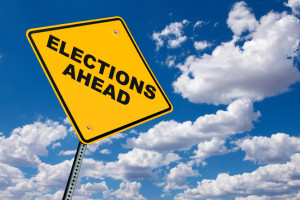 If you’re like most voters in Arkansas, you rarely if ever cast a ballot in school board elections. This May and November, that will start to change.
If you’re like most voters in Arkansas, you rarely if ever cast a ballot in school board elections. This May and November, that will start to change.
That’s because the Legislature last year voted to require school districts to choose between holding elections to coincide either with the May primaries or the November general elections. Because of that, school board candidates are filing for office now alongside candidates in other races.
Previously, school elections were in September, when few voters were interested or often even realized elections were occurring.
A lack of candidates and attention
School elections, like many others, typically don’t draw many candidates, and they certainly don’t draw much attention. In Arkansas – unlike in some other states – school board members aren’t paid. Most elsewhere aren’t either, but some are, and in Los Angeles they make $125,000 per year. Arkansas school board members are nonpartisan, which means voters can’t just look for the “R” or the “D” by the candidate’s name. For all those reasons, candidates don’t raise a lot of campaign dollars to pay for yard signs and ads, and they surely aren’t going to spend their own money.
As a result of those factors, turnout in many races has been very low. As one example, in 2011 Fayetteville school board member Steve Percival was re-elected 115-113 in a zone with 8,328 voters. That’s a turnout of 2.74 percent.
That election should have generated interest. Fayetteville is a community with many educated people who also make their living in education. It followed two big millage elections to build a new high school, the second of which had passed. It also occurred as schools were adopting the Common Core standards, which had a lot of people riled up. The disappointed Percival told me both candidates had run active campaigns, but people just didn’t bother to vote.
Legislators believed the very low turnouts meant the elections weren’t democratic. Such elections can be decided by a small number of activists – heck, by which candidate attends the biggest church or has the biggest family.
Who was opposed, and why
The move from September was opposed by many school board members and the Arkansas School Boards Association, and here I should disclose that I publish a magazine for ASBA that is supported entirely by ads that I sell. I also do a small paid project for the association each year. ASBA argued that the goal should be informed and interested voters, not simply more voters. As with other down-ballot positions, a lot of voters would just be guessing. The association also argued that school board members didn’t belong on the same ballot with other political positions, and that putting them there might make them more partisan.
Legislators did not buy that argument. After all, they’re pretty far down the ballot, too. And so they gave school districts a choice between May and November. More seem to be choosing May. It fits better with the calendar by seating new members months before school boards consider the next year’s budget and the superintendent’s contract.
Under the new law, school districts can continue to hold school millage elections any time, as long as they don’t occur after the school board elections. Some legislators don’t like that either, so there could be an attempt to change it next year. The argument is that some school districts schedule those elections at off times when turnout will be lower and they can win by getting supporters to the polls. That’s not an unfair accusation. On the other hand, the timing of elections is also affected by schools needing to raise money to qualify for state partnership funding.
So this year, depending on what your district has decided, you’ll be voting for school board members in May or November. In races that are uncontested, which often will be the case, the names at least will be on ballots most voters will actually see.
We know we’re going to have more voters. Now we’ll see if it actually affects the way schools are run.
By Steve Brawner
© 2018 by Steve Brawner Communications, Inc.